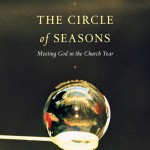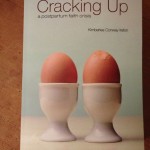I love old books. As in, give me a choice between a new book and an old book, and nine times out of ten, I’ll choose the old one. C.S. Lewis once wrote a defense of old books and said that one out of two books you read should be written in an earlier era; or, if that feels too daunting, one of every three.
One of Lewis’s reasons for recommending—or rather, insisting upon—old books is that when we read something written in a different era, we see things that we are otherwise blind to. The mores and conventions of that era are necessarily different from our own, and they can open our eyes to things about our own time and place that we might not otherwise see.
I think this is becoming increasingly crucial. We live in an era of chronological snobbery. We seem to think that we are the people and wisdom will die with us. Let me assure you that it won’t. Reading old books strips us of this chronological provincialism and helps us to see that people 200 years ago and even 2000 years ago were still people—they loved and hated and were irritated by their neighbors and learned (or didn’t) how to live with those irritations.
When I read Jane Austen, I never cease to be amazed at the depth of her understanding of people, their motivations, and their behavior. All this without the benefit of Freud! And when I read 4th century monk Evagrius Ponticus, I realize he is doing cognitive behavioral therapy—something we only invented a few decades ago. There is a great deal of wisdom in the past, and we leave old books to molder unread at our extreme peril.
However, there are two dangers when we read old books. One is to read them with an attitude of chronological superiority. How quaint it is that Davy Keith wanted to say a bad word so desperately that he could no longer pray—only to find when he said it that it wasn’t as fun as he’d expected; it was in fact so terrible that he was cured forever of his desire to say it. Ah shucks, we say in a condescending tone, isn’t that sweet? and never once consider that if your character and imagination have been steeped in and formed by goodness, saying the F-word just might have that effect on you.
If we maintain an attitude of chronological or cultural superiority to the past, we will miss most of what an old book has to offer us. We must approach these books with humility, with the recognition that we are not the people and wisdom will not die with us, that we have something to learn, and that we might learn it from this book we hold in our hands.
The second danger is the opposite of the first. It is that we will read uncritically. We see the past through rose-colored glasses and believe that if it is old it must be good. We believe that those were the good old days and the world is going to hell in a handbasket—or a minivan. The quickest way to cure oneself of this nostalgic view of yesteryear is to study history. You can’t read history for very long without realizing that this world has always been a broken and difficult place to live. The particular brokenness and difficulties of our era may be different than those in the past, but the past still had them, and it is foolish to think that it was better back then. It wasn’t. Some things were better. Many were worse.
Reading old books can help us recognize this, but if we read them with a rose-colored view of the past we rob ourselves of this realization. Authors of the past wrote out of their cultural, economic, and racial prejudices, just as we do. When we read old books, we ought not ignore the author’s prejudices or pretend they do not matter. They do matter, and if they are wrong, we must acknowledge that. We must not countenance or condone words that belittle or demean whole groups of people, however much we may otherwise like a book or an author.
And I think this is another reason to read old books. They can teach us that we can love an author but not love every word she wrote. Or that we can love a book but not love every last idea it promotes. In fact, we can love an author and actively hate some of her words and ideas.
We are becoming increasingly polarized in this country, increasingly fundamentalist in our outlooks (this applies equally to conservatives and liberals), and we desperately need people who can appreciate and critique at the same time. We need people who are nuanced in their understanding, who can love sinners (like those old authors) and hate their sin (like some of the words they wrote).
We need people who can hold on to and affirm what is good and noble and let go of and condemn what is not, and who can discern which is which. It is easier to see the blind spots of the past than to see our own (perhaps it is impossible to see our own—that is why they are called blind spots), but reading old books with both humility and judgment can help us practice the art of discernment.
And if we do that often enough—if we consistently read old books both humbly and critically, seeking both to learn what we have forgotten (or never knew) and to recognize the wrong-headed biases of the past, we may begin to glimpse the errors and excesses of our own era. And perhaps to right them.


